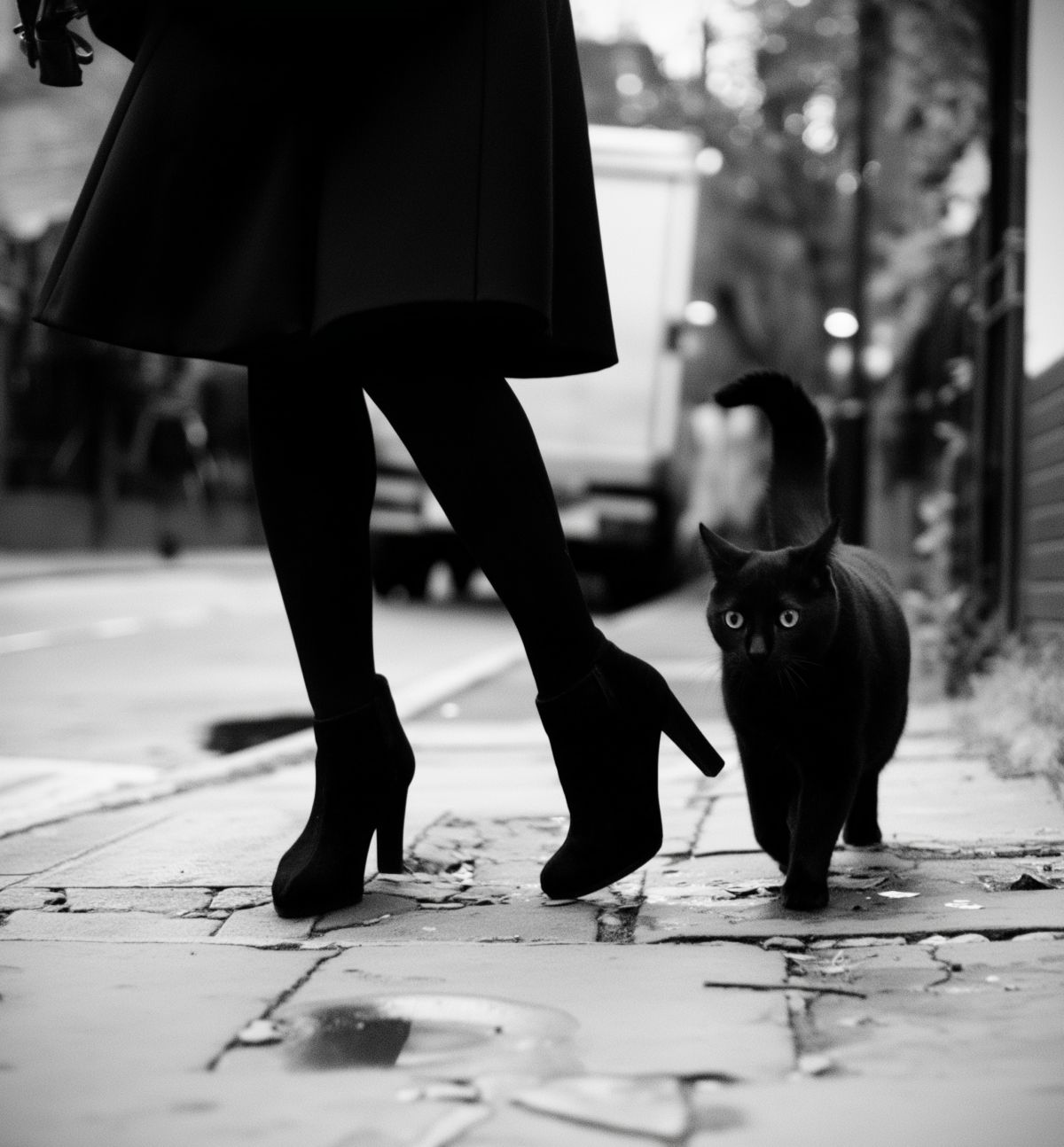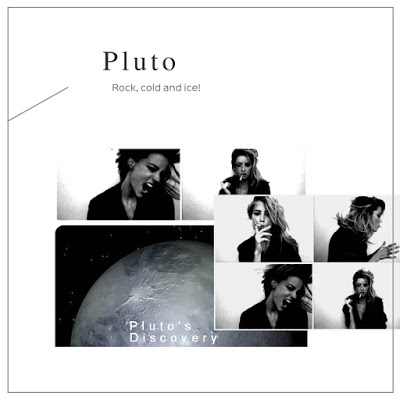
Pluto: Time to Panic
 Pluto takes a sledgehammer to the illusions we were suckled on, the fairy tales of familial warmth and maternal halos, and says, “This isn’t real. Look again.” And it hurts. Because the world we grew up in — even if it was cracked and broken — was still ours. We wanted our parents to be gods, didn’t we? And why not? What else could give us safety? But when Pluto comes knocking, it brings the brutal gift of sight. It rips the halo from our parents’ heads and shows us their humanity in all its bleeding, fumbling, petty detail. And this is the heartbreak — that to truly see someone is to watch the myth of them die. You witness the betrayals that once flew over your head like silent ghosts but now, in the cold light of day. It can feel like a form of death, and in many ways, it is. It’s the death of the old self — the one who could afford to believe. And what follows is not an immediate resurrection but a long, grim winter. What are you, after the illusions are gone? And yet — and here’s the twisted beauty of Pluto’s devastation — it leaves behind space. Space to become real. Space to build a sense of self that isn’t rooted in obligation or fantasy. It births in you a kind of honesty that terrifies people still living in denial. You become a mirror no one wants to look into. You start asking different questions. Not “Why didn’t they love me right?” but “Why did I think I had to earn love at all?” Under Pluto, innocence is peeled away with a cruelty that almost feels deliberate. The gods — if they were watching — must have looked away. There’s no polite word for it. It’s the moment the ground splits and swallows you.
Pluto takes a sledgehammer to the illusions we were suckled on, the fairy tales of familial warmth and maternal halos, and says, “This isn’t real. Look again.” And it hurts. Because the world we grew up in — even if it was cracked and broken — was still ours. We wanted our parents to be gods, didn’t we? And why not? What else could give us safety? But when Pluto comes knocking, it brings the brutal gift of sight. It rips the halo from our parents’ heads and shows us their humanity in all its bleeding, fumbling, petty detail. And this is the heartbreak — that to truly see someone is to watch the myth of them die. You witness the betrayals that once flew over your head like silent ghosts but now, in the cold light of day. It can feel like a form of death, and in many ways, it is. It’s the death of the old self — the one who could afford to believe. And what follows is not an immediate resurrection but a long, grim winter. What are you, after the illusions are gone? And yet — and here’s the twisted beauty of Pluto’s devastation — it leaves behind space. Space to become real. Space to build a sense of self that isn’t rooted in obligation or fantasy. It births in you a kind of honesty that terrifies people still living in denial. You become a mirror no one wants to look into. You start asking different questions. Not “Why didn’t they love me right?” but “Why did I think I had to earn love at all?” Under Pluto, innocence is peeled away with a cruelty that almost feels deliberate. The gods — if they were watching — must have looked away. There’s no polite word for it. It’s the moment the ground splits and swallows you.
Pluto rules the realm of the tormentor. The father who belittled you, the teacher or lover or friend who taught you to flinch before you even understood pain had a name. The bully who wouldn’t leave you alone. And when you’re in Pluto’s grip, it doesn’t matter how many calendars have passed. Ten years. Twenty. The old script keeps playing, the one they wrote in your most formative hours. The control they had becomes internalized — they don’t need to torment anymore; their cruelty is self-sustaining. And in this way, Pluto doesn’t just take — it occupies.
People might say “just let go,” as if trauma is a balloon at a birthday party. But Pluto doesn’t work that way. You don’t “move on” — you descend. You go down into the underworld, like Orpheus, like Inanna, like every mythic soul who had to barter with darkness to reclaim their light. If we let them stay — our inner tormentors, the voices that are no longer ours but still speak with frightening authority — they will continue their slow ruin. They will sabotage joy, question love, infect hope. It is a spiritual sickness. And left untreated, it makes a person cautious, resentful, afraid of their own potential because somewhere deep down they were taught: “You don’t deserve.” Pain this deep can make us powerful, if we dare to confront it. The path is long. Lonely, often. But it’s not without reward. Each time you refuse to play the old role, each time you contradict the voice that says “you’re worthless,” each time you stay with your own pain instead of running from it — it’s a revolution. Pluto tries to break us, but in doing so, it shows us how to remake ourselves. Not as copies of what came before, but as authentic beings who survived the fire and lived to tell the tale.
Real Panic
Pluto rules real panic. Not the mild social flutterings of embarrassment or nerves, but the full-bodied, soul-shattering terror that only descends when the world, as you knew it, folds in on itself. The dark, cavernous vortex — this is Pluto’s realm. This isn’t anxiety, it’s an apocalypse. The moment when life takes a sudden left turn into chaos and you, so small and helpless, realize there’s absolutely nothing you can do. It is precisely this kind of moment that brands the psyche. It’s not a memory, it’s a scar. A scar that aches whenever life starts to feel too quiet, too still, because deep down, Pluto has taught you: calm is a liar. Anything can go wrong. Everything can vanish.
Where Pluto is placed — by sign, by house, by aspect — it leaves a bruise that never quite fades. It is the epicentre of fear, the coordinates of our most primal threat. And wherever it lives in your chart, that’s where you’ve built a fortress — but one made of trembling hands and locked doors, not certainty. This is why panic, true panic, is so often misunderstood. It isn’t just a reaction to a moment; it’s the body remembering every time safety was an illusion. It is the body remembering for us the unspeakable — the deaths, the abandonments, the betrayals. Pluto brings these memories back to us through panic attacks, nightmares, sudden collapses of composure. It drags you back under, again and again, until you learn not to run — but to see.
Pluto creates vicious cycles—spinning in the same pain, the same reactions, the same shutdowns—because its lesson hasn’t been fully metabolized. It stays, like a haunting, until we confront it. To work with Pluto is to begin the work of unravelling fear from fate. Of separating what happened to you from what you now believe about yourself because of it. It’s messy. It’s terrifying. But it’s holy work. The kind of spiritual archaeology that digs up old bones not to bury them again, but to name them — and in naming, release. The panic never fully goes. But you can keep standing in this spinning room and say, “I am still here.” It’s how cycles break. It’s how souls rise.
When you feel danger in close, Pluto’s alarm bells ring in your DNA, your blood, your instinctual core. It’s the moment you know, with no words needed, that something terrible has crossed the threshold. It threatens your comfort, and it threatens your existence. Sometimes, panic is the right response. Sometimes, the house is on fire. Pluto activates the parts of us that know, even without evidence, that our lives are on the line. It’s always the same message: everything you’ve relied on can vanish in a heartbeat. What then? Who are you then? And still, within this horror, is the chance of alchemy. The stripping away of every false certainty until we find something indestructible underneath.
The Cruel Transformation
Pluto doesn’t do things gently. It doesn’t pat your back and say, “Let’s talk about your self-worth over tea.” Pluto drags you, kicking and screaming, into the dungeon of your own psyche, locks the door, and says, “Look at this.” This is why Pluto isn’t for the faint of heart. Because to look — truly look — at your own shadow, at the parts of you that feel unlovable, broken, shame-soaked — it takes a level of courage that our culture rarely honors. Most of us, for most of our lives, spend energy avoiding this confrontation. We cover it with achievement, sex, substance, status. We try to outrun the inner voice that says: “You’re not enough. You never were.” But Pluto waits. It waits in the deep. And eventually, it calls you down.
The seed of badness is the word. This isn’t necessarily because we are bad, but because somewhere along the way, someone taught us to feel that we were. Pluto stores that feeling. It archives every moment of abandonment, of humiliation, of betrayal. It doesn’t forget — it’s thorough. Pluto says, “We can’t be free until we bring this into the light.” And this is where the real horror, and also the real healing, lies. Because in those Pluto moments — when you are down there in the dark, sobbing over the belief that you are unlovable, unworthy, ugly, insignificant — there is a doorway. And if you don’t slam it shut, if you stay there with the pain long enough, you start to hear something underneath it all.
You realize: this isn’t mine. This badness, this shame — it was given to me. By a world that didn’t know how to love me. By people who were drowning in their own wounds. And slowly, slowly, you begin the process of cleaning. You don’t pretend the pain isn’t there. Pluto offers a kind of psychic sanitation. But first, it makes you sit in the filth. It makes you smell the rot. Only then does it teach you how to cleanse, how to rebuild from the bones. And what you build after that — a sense of attractiveness, of success, of love — it won’t be performative. It won’t be borrowed. It will be yours. Hard-earned. Authentic. Unshakable. Pluto doesn’t make you pretty — it makes you powerful. And this power is the antidote to every lie you were ever told about your worth.
The Darkness
There’s a darkness to Pluto. It’s the kind that seeps into the corners of your mornings, that makes the act of rising from bed feel Herculean. The world feels blackened, not because it’s changed entirely, but because you have. The lenses you once saw through — the rosy filters of hope, illusion, or naivety — have been shattered. And what’s left is the brutal clarity of real life, unsoftened by delusion. And no, there’s no manual for this descent. No pamphlet titled How to Survive the Death of Who You Were. No well-meaning teacher with a listicle on “5 Ways to Enjoy Your Existential Breakdown.” Pluto doesn’t care about etiquette. It doesn’t care how you look or whether your suffering makes others uncomfortable. It just wants you real. And real, for most of us, looks like mess. Like tears and silence. Like isolation so deep you begin to wonder if you’re even human anymore.
Because that’s what Pluto does — it dissolves. It deconstructs. It takes the scaffolding of your identity and rips it down. And you’re left standing in the rubble thinking, “Nothing will ever be the same.” And you’re right. It won’t. This is the point. The part of you that could live in the before — that version cannot survive the journey through Pluto. It’s a passage.
Pluto doesn’t always come with redemption tucked beneath its cloak. It doesn’t always offer a phoenix after the fire. Sometimes there’s just ash. Cold. Lifeless. Final. The panic cannot be rehearsed for. You don’t get to prepare. You don’t get a training montage with uplifting music and a coach shouting affirmations. No, when Pluto arrives, it kicks in the door while you’re still in your dressing gown. It takes what you love. It breaks what you thought was unbreakable. And it leaves you there, mouth open, hands empty.
There’s something violently honest about this kind of experience — the kind that resists psychology’s attempts to box it up, explain it away. There’s healing sometimes. We can look back years later and map the growth like forensic astrologers. But in it? In the unrehearsed moment? There is only survival. There is only enduring what cannot be understood. People are sometimes just cruel. Situations do sometimes just unravel without meaning. Words fail us. They slip through our fingers. Because Pluto lives beneath language. It is felt, not described. Like grief, or madness, or the sick certainty that life just changed in a way that can never be undone. You can try to explain it, sure. You can dress it up in metaphor and myth. But at the end of the day, sometimes all that’s left to say is: It happened. And I lived. It’s not defeatism. It’s honesty. It’s a kind of strength that the healing-obsessed culture forgets. Because acknowledging the chaos — the pure, brutal chaos — is a form of courage. Refusing to paste on positivity where there is only pain? This is integrity. So here is Pluto without the pretty ending. Let’s honor the blackness. Honor the void. Let the silence speak. Because that, too, is Pluto—the part we rarely admit, but deeply, deeply need to.







 The Dark Side of Taurus: Love, Obsession, and Self-Esteem
The Dark Side of Taurus: Love, Obsession, and Self-Esteem
 Material Mysteries: Pluto in the 2nd House, According to Astrological Research
Material Mysteries: Pluto in the 2nd House, According to Astrological Research
 Moon Trine Mars Natal Aspect
Moon Trine Mars Natal Aspect
 Pisces Fish Symbol Meaning
Pisces Fish Symbol Meaning
 The Differences Between Synastry and Composite Charts!
The Differences Between Synastry and Composite Charts!
 Taurus: Psychology
Taurus: Psychology
 Sun Square Pluto Natal Aspect: I Am Titanium
Sun Square Pluto Natal Aspect: I Am Titanium
 Sun Conjunct Pluto Synastry: Enlightening or Annihilating
Sun Conjunct Pluto Synastry: Enlightening or Annihilating
 Sun Square Pluto Synastry: You’ve Got That Power Over Me
Sun Square Pluto Synastry: You’ve Got That Power Over Me
 Pluto’s Discovery and Astronomical Features
Pluto’s Discovery and Astronomical Features
 Jungian and Freudian Astrology: Part 1
Jungian and Freudian Astrology: Part 1
 Venus Trine Saturn Synastry
Venus Trine Saturn Synastry
 Mars Conjunct Pluto Synastry
Mars Conjunct Pluto Synastry
 Moonlight Psychology
Moonlight Psychology
 Neptune in the 1st House
Neptune in the 1st House
 Mars-Pluto Synastry: Something Quite Dark and Dangerous
Mars-Pluto Synastry: Something Quite Dark and Dangerous
 Moon Conjunct Uranus Natal Aspect
Moon Conjunct Uranus Natal Aspect
 Neptune in the 12th House
Neptune in the 12th House